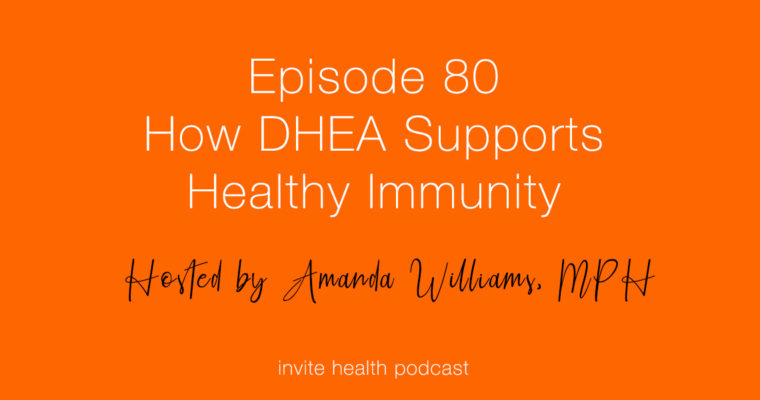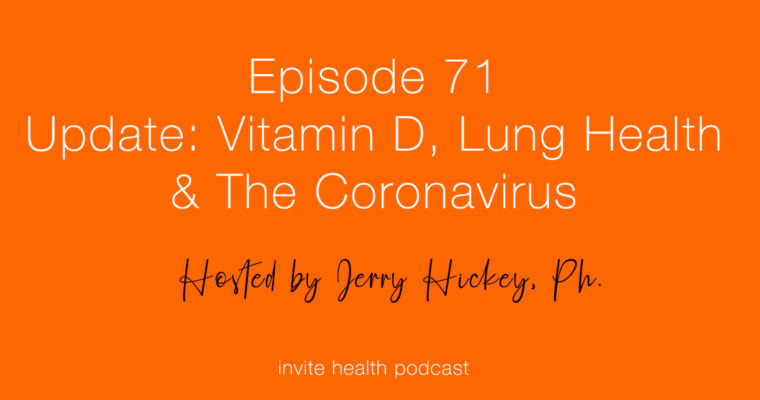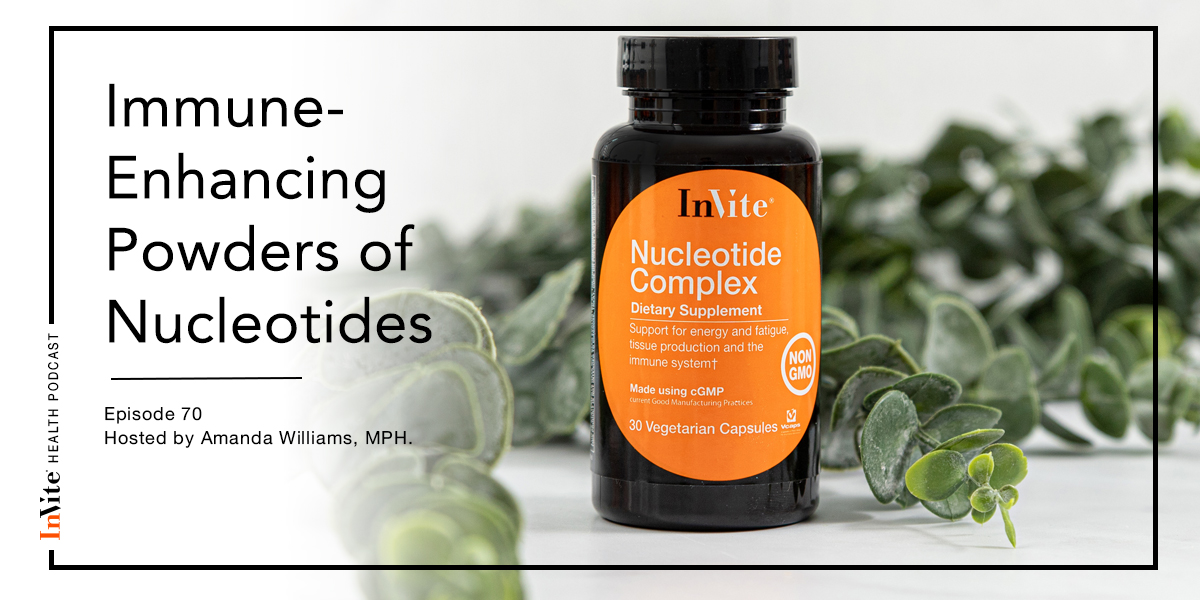Invite Health Podcast, Episode hosted by Amanda Williams, MPH
Subscribe Today!
On today’s episode, we are going to be talking about Nucleotides. This is a blend of very important immune-supporting nutrients that I find myself speaking to our customers about on a consistent basis. Right now during this pandemic, we all want to make sure we are taking the appropriate steps and measures to enhance our immune defenses. Nucleotides are a really beneficial way to do that.
What are nucleotides?
Nucleotides are your basic building blocks of your DNA and RNA. Most people know of the double helix of our genes. Your DNA – deoxyribonucleic acid – contains nucleotides that function as the primary genetic information center inside of your cells. They are also responsible for different aspects of the way that the body functions, including metabolism and the transportation of critical chemical signals within the immune system. In order to support our immune defenses, nucleotides work by enhancing the rate at which healthy immune cells and healthy gut cells repair themselves. This is an extremely important factor because if we do not have enough of these nucleotides, it is just like the motherboard of a computer not being able to function.
Simply, nucleotides are responsible for the signal sent to the immune system to fend off pathogens, including bacteria and viruses. Pathogens can certainly be destructive in the human body. What we know, is that nucleotides play a functional role in helping our cells with repair and recovery.†
The Science Behind Nucleotides
Being the main building block of nucleic acids and having to have all of these components together in order for cells to be able to function is an important job. In order to stay healthy, it is critical for the body itself to be able to respond in a very fast mechanism in order to deal with whatever foreign pathogen is trying to invade the body. If you do not have a good amount of nucleotides, you may have a situation where you have more severe symptoms and prolonged illness. Now, there are many other factors to this as your innate and adaptive immune systems rely on a whole series of vitamins and minerals, as well. This is why, when you look at different factors of a virus including how infectious it is and how symptomatic people can become, you must question whether you have enough nucleotides, zinc, selenium, vitamin C, vitamin D and magnesium in the body. You can find more information about those essential micronutrients by clicking here.

Dietary Nucleotides
High concentrations of nucleotides can be found in breast milk which is why you are starting to see them in different baby formulas, along with probiotics and DHA. The food world is starting to catch on to nucleotides and starting to include them as added nutrients to baby formulas. This is beneficial to help to enhance the immune system of a growing child and optimize beneficial intestinal bacteria.
Nucleotides are considered an immuno-modulator, modulating the expression of different inflammatory reactions in the body, especially in the intestines. It’s important to note that 70-80% of our immune defenses are located in the intestines. This is why when you are taking a nucleotide supplement, it is helping to enhance overall gut health, supporting microvilli and reinvigorating the lining of the intestines. But nucleotides are not only beneficial for immune health. When you look at clinical research, you will see that supplementation of nucleotides have been shown to be effective for overall health.
One study published in the Nutrition Journal – a double blind, placebo-controlled trial – examined a group of participants who had IBS to determine if dietary supplementation of nucleotides would be beneficial. The results showed that dietary nucleotide supplementation improved many of the symptoms of IBS, compared to baseline. This included abdominal pain, urgency of having to use the restroom, bloating and gas. Researchers say this makes it evident that nucleotides can play a beneficial role for gut health.
Why Nucleotides Are Known As The Immune System Tonic. Click Here! >>
A separate study published in the journal Strength and Conditioning Research examined the physiological effects of nucleotide supplementation on resistance exercise stress in men and women. After exercise and when the body is under extreme stress, you can actually weaken your immune system. It is just a small window but it is it a window in which you are more prone to the potential infection of a bacteria or virus. In this double-blind, placebo-controlled trial, a group of athletes were told to workout as normal but researchers wanted to examine markers for inflammation, stress markers like cortisol, muscle cell damage shown by levels of creatine, and white blood cells. They found that the group that was given nucleotides did much better for all of these markers versus participants of the study taking a placebo.
Thank you for tuning in to the Invite Health Podcast. You can find all of our episodes for free wherever you listen to podcasts or by visiting www.invitehealth.com/podcast. Make sure you subscribe and leave us a review! Follow us on Facebook, Twitter and Instagram at Invite Health today. We’ll see you next time on another episode of the Invite Health Podcast.











